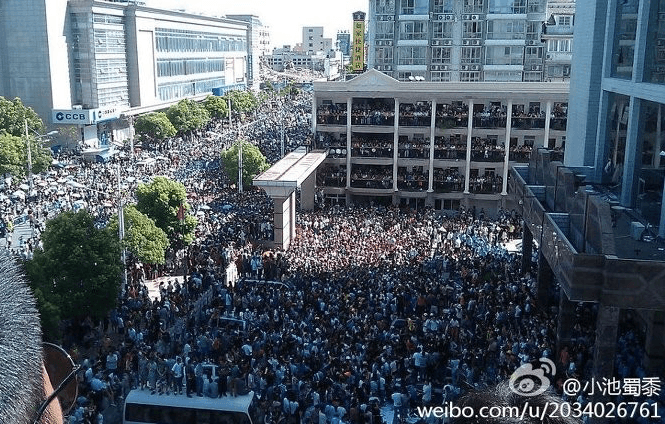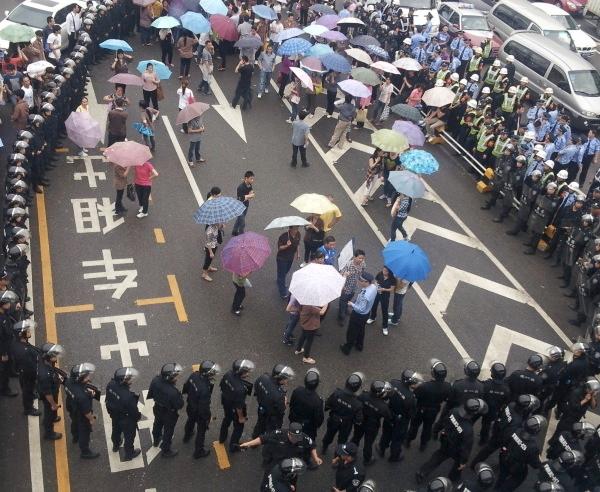Tens of thousands of residents in a small city of China broke through a police blockade and raided a government building on July 28, at one stage apprehending the mayor and stripping him of his shirt, in an attempt to have an industrial project shut down.
Residents of Qidong City were incensed with plans to divert wastewater into an estuary near the city, for a nearby Japanese paper manufacturer.



